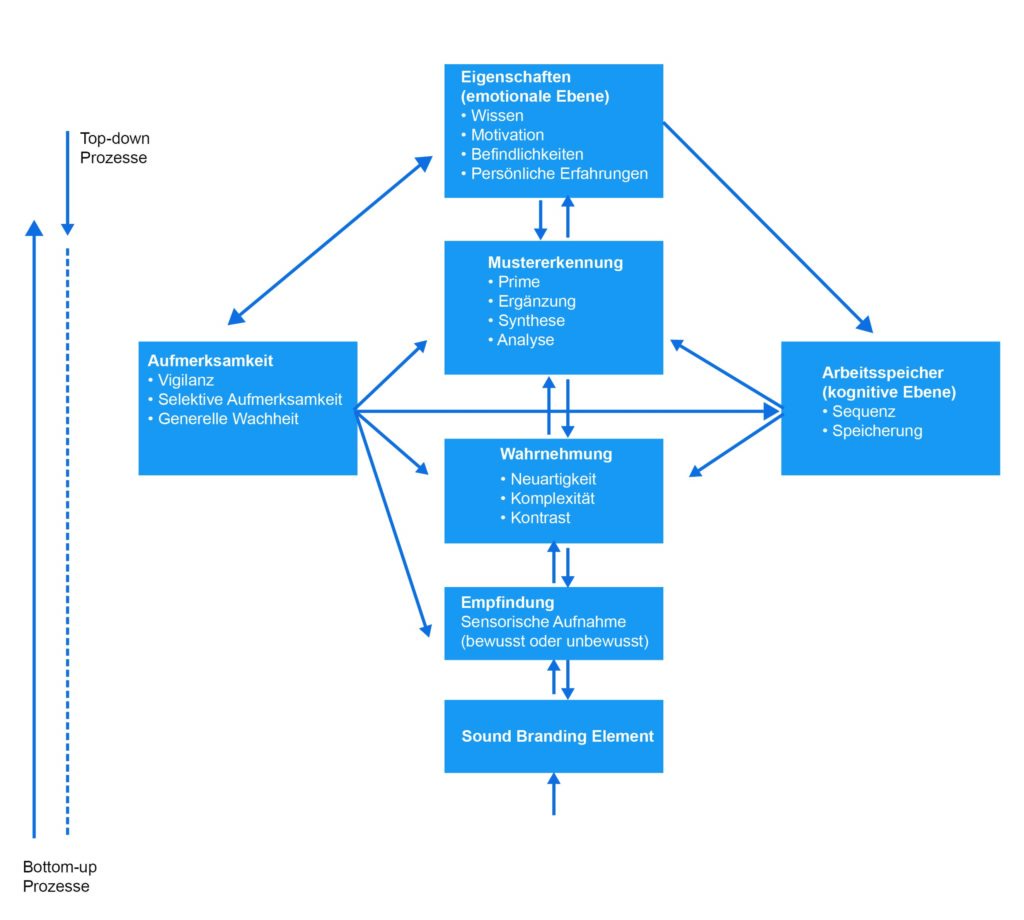Already in previous contributions I pointed out the effect of acoustic signals in marketing. In a world full of information, messages and brands you have to go new and innovative ways to attract attention. The neuromarketing and the acoustic mark guidance offer here a fast way into the head of the customer: acoustic elements.
Acoustic elements can influence the consumer in many ways. On the one hand they can be used to clarify certain product characteristics, on the other hand they can also increase brand recognition and thus help the company to occupy certain positions in the target group’s memory.
effect of acoustic signals on the consumer
When recording and processing acoustic information, a distinction is made between bottom-up processes in which perception follows certain specific characteristics, such as novelty, complexity or contrast to the environment; and so-called top-down processes. Top-down perception is based on certain characteristics of the recipient such as expectations, knowledge, motivation – but also on sensitivities such as pain, hunger or thirst.  Central auditory processing model (Based on Haug, 2011)
Central auditory processing model (Based on Haug, 2011)
If these two models of auditory processing are taken into account, there is a need to address connections already stored in brand management and thus create a link between brand identity and expected perception. This can be done by the product sound, by the choice of a suitable brand voice or by music that is both affective and cognitively appealing. A large part of the acoustic processing takes place unconsciously. With the correct use of these elements, for example in the building blocks of audio branding and in combination with other methods from the neurosciences, such as Mood Management, brands can gain a quick advantage in market placement and stand out from the competition.
Translated with www.DeepL.com/Translator

